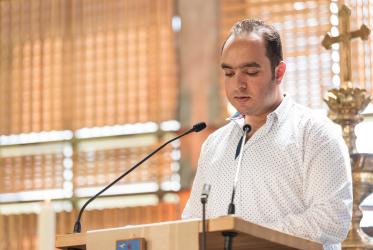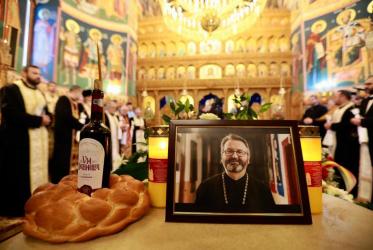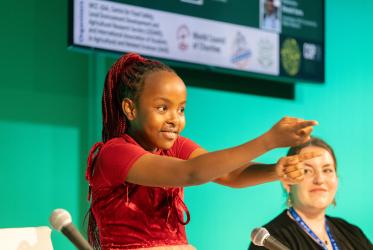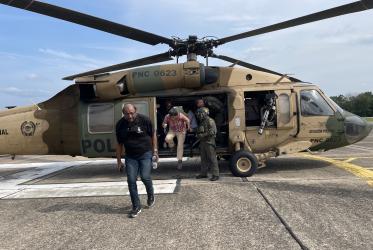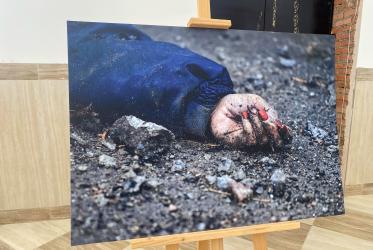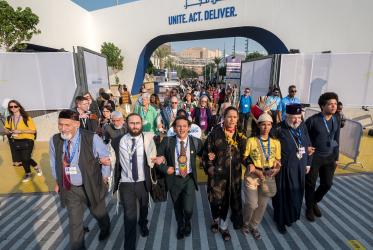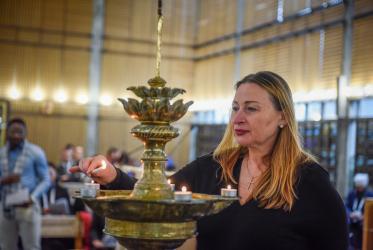Displaying 21 - 40 of 1091
22 February 2024
WCC submits comments on draft UN “Pact for the Future”
12 February 2024
WCC to share key insights at World Social Forum
09 February 2024
Award-winning work means interactive storytelling with inclusivity
06 February 2024
WCC mourns loss of Dr William Stanley, who pursued economic justice
18 December 2023
WCC sees firsthand those most affected by conflict in Colombia
15 December 2023
Tackling sexual violence in war
14 December 2023
Candlelight ceremony brings spiritual touch to Global Refugee Forum
14 December 2023
Ellyanne Chlystun-Githae Wanjiku to COP28: “listen more to children”
13 December 2023
“God empowers refugees and displaced people"
12 December 2023




